Extractive industries and sustainability do not go hand in hand. Or do they? We asked Total and Rio Tinto for their views
As it affects business continuity, regulation and reputation, is sustainability part of the risk manager’s role?
John Summers – Certainly it is. Sustainability should and must be managed like all other risk to the business. Of course, the management at operational level often needs advice and guidance from specialists.
What are the key sustainable development risks for Rio Tinto?
Phil Turner —Sustainability risks are many things and priorities change with time. Right now those high up on our list of concerns are climate change, community relations, safety, access to water and occupational health.
Safety is our highest priority sustainable development risk. It affects everything we do at every level of the business and is constantly pushed by our CEO and management team. Even so, this has been one of the worst years for safety we have had. This year we had a helicopter crash that killed ten people, which brought home the fact that notwithstanding all of the work we do, it doesn’t take an awful lot to go wrong for you to have a major accident that echoes throughout the organisation.
A major challenge is to engage with our contractors in the same way that we engage with our own employees. The majority of fatal accidents have involved contractors .
Other risks high on our agenda are access to water and water quality. Many of our operations are in arid environments, and it is very important that we have access to water. We just cannot run without it, but there are often many competing demands for water .
Occupational health is another risk that is very difficult to manage long term, if something happens that has an effect which is not immediate.
John Summers—The problems are insidious and they are latent. It is not until people have been doing jobs for a number of years that the association can be made between the types of illnesses and the jobs being done. We do a lot to check what we know.
Phil Turner —There are a number of others which are very important. One of the biggest things we will be tackling next year is human resources and the access and retention of the people we need to run our business. In some parts of the world we cannot get enough people to run our business right now. So looking after people, having a healthy workforce and maintaining safe places of work are critical.
“The principal risks are safety, health, environment and ethics.
Jean-Michel Gires
Closure is a differentiator. We have closed some operations and rehabilitated the area in such a way that we have been able to take community leaders to new ventures to help explain Rio’s commitment, which in turn helps us with potentially new operations. If community leaders confirm our claims of good social and environmental management, that is a huge advantage for us and may give us preferential access to resources .
John Summers —We build closure into the pre-investment design of our project. When projects are approved for major capital injection, a closure plan has to accompany the request.
How do you maintain good relationships with the communities you operate in?
Phil Turner—Community relations are very important to make sure we maintain our licence to operate, not just the licence given to us by the government but the one given to us by the community. These are equally important.
John Summers—It is a very serious commitment. Rio has made pledges to clean-up behind previous operators who are nothing to do with us.
Phil Turner—Often what communities value is jobs and development opportunities; more so than a new football ground. It is a case of understanding what the communities need and want. Short term good can turn into long term harm through bad decisions pretty quickly, and that can really affect your ability to operate and your ability to continue operating in the future.
What is the reputation risk of not doing these things?
Phil Turner—It is very large. We may not have a shop on the high street, but we have customers. Reputation is one of our biggest differentiators. We are a preferred supplier of gold and diamonds because we have the right sustainability strategies in place.
John Summers—We refuse to sell to producers who use child labour for example, so we close off a potential market for our own product. And we do that in the clear knowledge that it may not be the most financially logical thing to do, but it is the right thing to do.
Phil Turner—Apart from the moral reasons it is good business. A good reputation potentially gives us access to resources and markets that others may not have.
“Sustainability should and must be managed like all other risk to the business.
John Summers
Our reputation is extremely important to us and it can have a very big impact on the bottom line.
Jean-Michel, Is the pressure to go green principally an issue of reputation?
Jean-Michel Gires—Years ago companies used to ignore society too much as they were only focused on their industrial and commercial issues. They were not ready to explain their actions, even to their neighbors. Today, expectations about sustainability are getting higher and higher. And other issues, like limited resources, damage to the environment and reduced biodiversity, are becoming more important as the world population grows.
We have decided to face these challenges. In addition to complying with applicable laws and regulations and respecting the local culture in the countries we operate in, Total seeks to work with civil society in the shared ambition for sustainable development. Reputation is definitely not the principal issue.
What are the key sustainable development risks in the energy industry and how are you managing them?
Jean-Michel Gires—The principal risks are safety, health, environment and ethics. Our core business means that we incur these risks so it is our responsibility to manage them and to safeguard our people and property.
With respect to environment, since exploration and production activities may take place on sites that are ecologically sensitive, like tropical forests or sensitive marine environments, each site requires a specific approach to minimise the impact on the ecosystem and biodiversity.
Environmental impact studies are done prior to any industrial development, taking into account any special sensitivity and plans to prevent and reduce the impact of accidents.
There are also environmental risks downstream related to the life cycle of the products we manufacture. These risks can arise from the intrinsic characteristics of the products, which may for example, be linked to the greenhouse gas effect.
We have put in place procedures to minimize the industrial and environmental risks inherent in Total’s activities. These plans are designed to improve environmental performance, particularly regarding the use of natural resources, air and water pollution, waste production and treatment, and site decontamination. They also contain objectives to reduce emissions, water pollution and improve energy efficiency.
“Reputation is one of our biggest differentiators.
Phil Turner
Our aim is to make Total the benchmark in industrial safety. We have introduced a plan with the aim of enhancing the safety culture embraced by all of our employees and partners.
For health, we track occupational illnesses and identify risks in the workplace. These measures are supported by health care for employees.
Total deploys health and hygiene guidelines to identify the occupational illnesses and risks that might affect our employees. We also implement occupational illness reporting systems across our units and continuously monitor the health of our employees. Working with specialized organizations we monitor the health of people living or working near our facilities. And we work with governments and NGOs to organize preventive measures in many of our host regions.
Last but not least is ethics. The oil industry’s exposure to bribery and corruption is high. About 25% of Total’s employees work in high risk countries with a Transparency International Corruption Perceptions Index rating of less than 5.
Our three-pronged policy with respect to risk of corruption is based on education, prevention and control, and sharing with other multinationals.
How do you try to maintain good community relations?
Jean-Michel Gires—With operations in 130 countries, Total is very aware of community relation challenges. We want to make our presence a driver for growth and social progress, especially in non-OECD countries, which account for an increasing share of our operations.
When we begin operations in a country or region, we do everything we can to ensure that they have a beneficial impact from the development of industry and employment. In non-OECD countries, when the production base allows, we purchase equipment and services locally. We also support small businesses in host regions. And our community programs are designed to contribute to the human development of local populations. In particular, we conduct actions in the areas of health care, education and training.
What strategies have you implemented to combat climate change?
Jean-Michel Gires—As a global energy producer and provider, Total is concerned on more than one level by climate change issues. As an oil and gas producer, we supply about 2% of the heating and automotive fuels used worldwide. As a manufacturer, we also emit carbon dioxide. Our production operations emit an average of 60m metric tons of CO2 equivalent annually.
We are committed to controlling our greenhouse gas emissions and deploy many initiatives to that end. In December 2006 we committed to reducing gas flaring at our exploration and production sites by 50% by 2012 compared to 2005 volumes. Between 1990 and 2007 our total emissions grew only 7.7%.





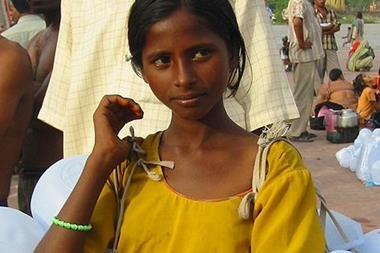
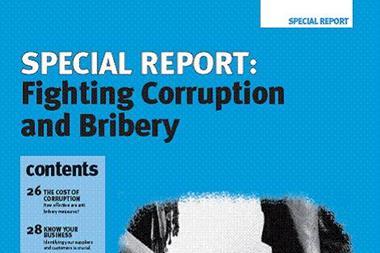
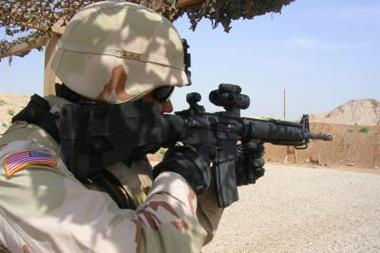
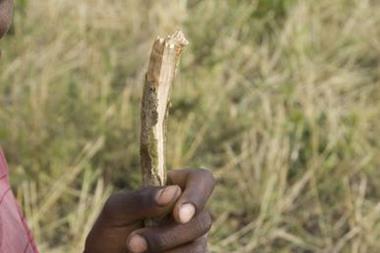
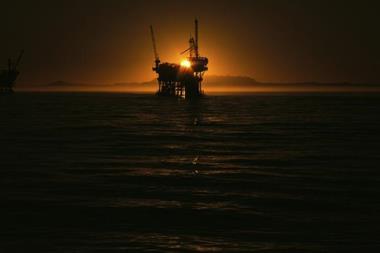









No comments yet